Week of street pressure. Zelenskyy responds to protests with new bill targeting NABU and SAPO
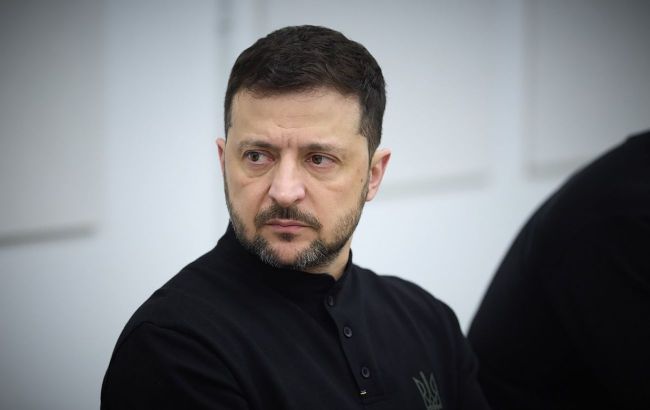 Volodymyr Zelenskyy, President of Ukraine (photo: president.gov.ua)
Volodymyr Zelenskyy, President of Ukraine (photo: president.gov.ua)
President Volodymyr Zelenskyy has submitted bill No. 13533 to the Verkhovna Rada (Ukraine's Parliament), aiming to restore the independence of the National Anti-Corruption Bureau of Ukraine (NABU) and the Specialized Anti-Corruption Prosecutor's Office (SAPO). A day earlier, a group of 48 members of parliament submitted a similar bill. What are the differences between these two proposals, and when might the Rada vote? Read more in the article by RBC-Ukraine.
Key questions:
- Why did the NABU-SAPO scandal erupt?
- What does Zelenskyy propose in bill 13533?
- When will the Rada review the president's proposal?
- What alternative MPs are offering?
On Tuesday, July 22, the Verkhovna Rada passed bill No. 12414, with key amendments introduced before the second reading. These changes effectively deprived NABU and SAPO of their independence.
In particular, the Prosecutor General of Ukraine was granted the authority to seize any cases from NABU detectives and reassign cases already under investigation by the Bureau to other law enforcement agencies. These critically significant changes were justified on the grounds of shielding NABU from alleged Russian influence and unblocking cases that had stalled for years.
The bill sped through parliamentary committees, landed on the session agenda the same day, and was rapidly voted on. A total of 263 MPs supported the bill, and by that evening, President Zelenskyy had signed it, despite protesters already gathering near the Presidential Office.
The amendments triggered shock both inside Ukraine and abroad. While Western partners tried to persuade the government that NABU and SAPO's independence must be restored, public protests gained momentum. The day after the bill passed, crowds in Ukrainian cities grew larger than before, prompting the Presidential Office to respond.
On July 24, three days after the law was signed, Zelenskyy introduced a new bill that essentially "reset" the previous one and offered new "safeguards."
Three days of controversy
The controversial amendments concerning NABU and SAPO came unexpectedly and were passed just as swiftly. When the vote result of 263 lit up the board in Parliament, the hall erupted in applause and general cheer. This reaction was telling, as several MPs who voted in favor were themselves subjects of NABU and SAPO investigations.
Immediately after the vote, the heads of both anti-corruption bodies, Semen Kryvonos and Oleksandr Klymenko, faced the press. They stated that the amendments would effectively destroy Ukraine's anti-corruption infrastructure and called on President Zelenskyy to veto the bill.
That day, criticism of the bill sparked a wave of public discontent. MPs who had voted against it called for an alternative draft and began collecting signatures. Public figures and activists scheduled protest rallies via social media.
 Zelenskyy meets with heads of law enforcement and anti-corruption agencies (Photo: t.me/V_Zelenskiy_official)
Zelenskyy meets with heads of law enforcement and anti-corruption agencies (Photo: t.me/V_Zelenskiy_official)
Meanwhile, Western partners voiced their concern one after another. Allies reminded Ukraine that NABU and SAPO's independence is a core condition for EU integration. Among those alarmed by the reforms were the President of the European Commission, leaders of France, Germany, and the UK, as well as US Congress members. Their main message is to restore the independence of NABU and SAPO.
"The dismantling of key safeguards protecting NABU's independence is a serious step back. Independent bodies like NABU & SAPO, are essential for Ukraine's EU path. Rule of Law remains in the very center of EU accession negotiations," said EU Commissioner for Enlargement Marta Kos.
That same day, Prosecutor General Ruslan Kravchenko and Vasyl Malyuk, the head of the Security Service of Ukraine (SBU), publicly defended the amendments. At a late-night press briefing, Malyuk cited alleged Russian influence on NABU and pointed to a case involving NABU employee Viktor Husarov, suspected of ties to Russia. He also criticized NABU's slowness in addressing such issues.
Both officials reassured the media that NABU and SAPO would remain independent, despite being fully subordinated to the Prosecutor General's Office.
"Do we live in a rule-of-law state? I say we do. What's the main law? The Constitution. No one was abolished. I'm not a deputy or a legislator. And believe me, what they voted on is an issue for MPs, and you should ask them. That would be correct and logical. They'll give you the details," said Malyuk.
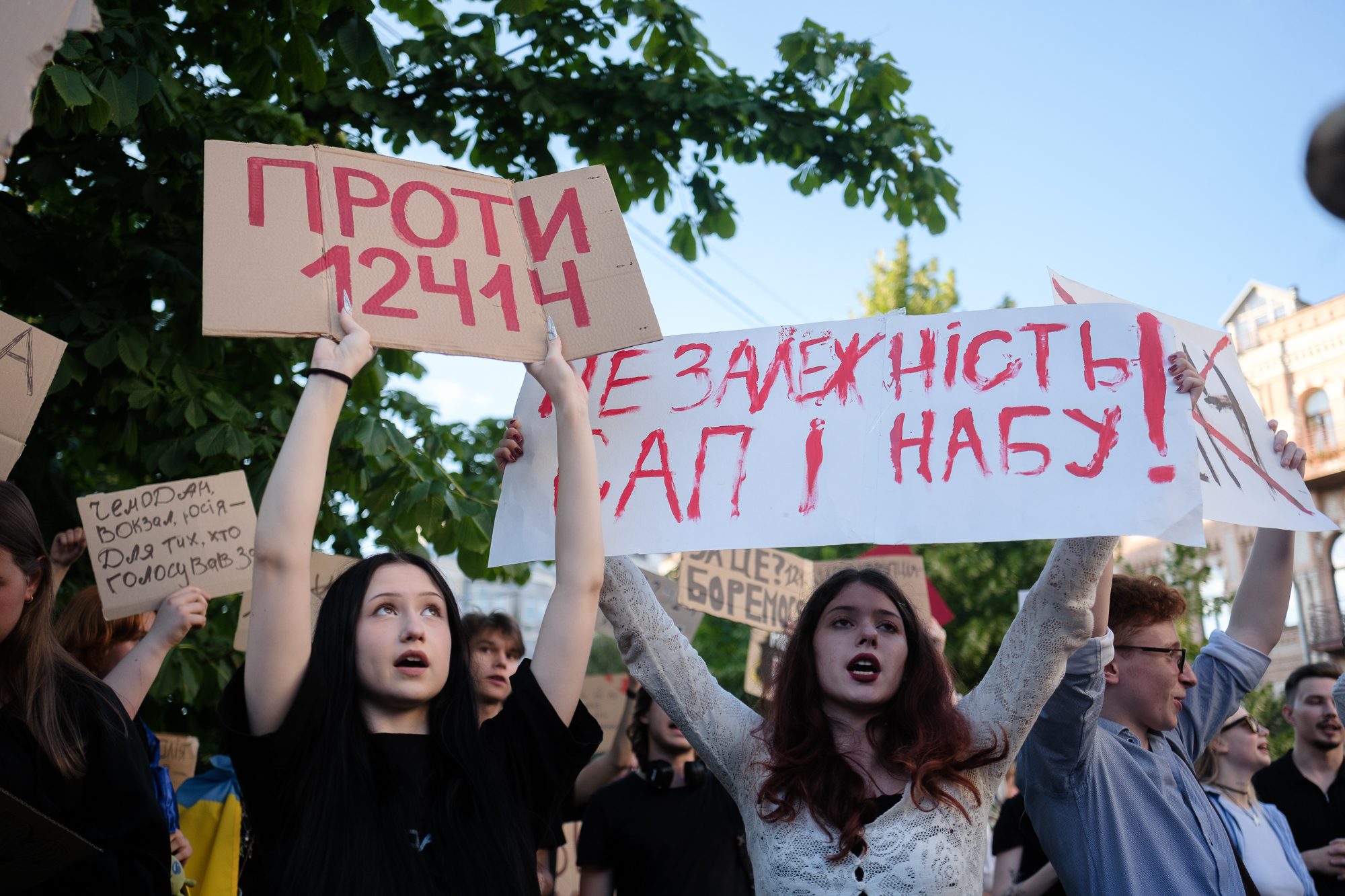 Ukrainians have been protesting since Tuesday over the controversial bill (Photo: Vitalii Nosach/RBC-Ukraine)
Ukrainians have been protesting since Tuesday over the controversial bill (Photo: Vitalii Nosach/RBC-Ukraine)
Malyuk also referred to recent high-profile searches of National Guard officials, including Brigadier General Oleksandr Pivnenko. According to the SBU chief, those actions had a demoralizing effect on National Guard troops, prompting Interior Minister Ihor Klymenko to spend weeks visiting units to calm them.
Sources in government told RBC-Ukraine that the reason for the amendments wasn't necessarily about the Presidential Office seeking to control NABU and SAPO.
"The government was frustrated that cases were proceeding without their knowledge. They were learning about investigations from the media, while the public was holding them accountable for fighting corruption," a source said.
Meanwhile, protests were held near the government quarter in Kyiv and other Ukrainian cities.
RBC-Ukraine reported that approximately 5,000 people gathered at Franko Square in Kyiv throughout the evening. Protesters, holding various signs, urged Zelenskyy not to sign the bill. But the President did sign it, prompting cries of "Shame!" from the crowd.
Zelenskyy's traditional nightly video address didn't appear until after midnight. Like the Prosecutor General and the SBU chief, the President emphasized the risk of Russian influence on anti-corruption institutions and mentioned "billion-dollar cases that have been stuck for years." But few were persuaded. On July 23, critics continued to rally support for an alternative draft, while protesters called for further demonstrations.
At noon on July 23, Zelenskyy met with the heads of Ukraine's key law enforcement agencies, including the State Bureau of Investigation (SBI), NABU, SAPO, the National Agency on Corruption Prevention (NACP), and the Interior Minister. Describing the meeting, Zelenskyy reiterated that Russia is Ukraine's main enemy and cases shouldn't be investigated for years. Ukrainian leader added that protesters had been heard, but didn't elaborate further.
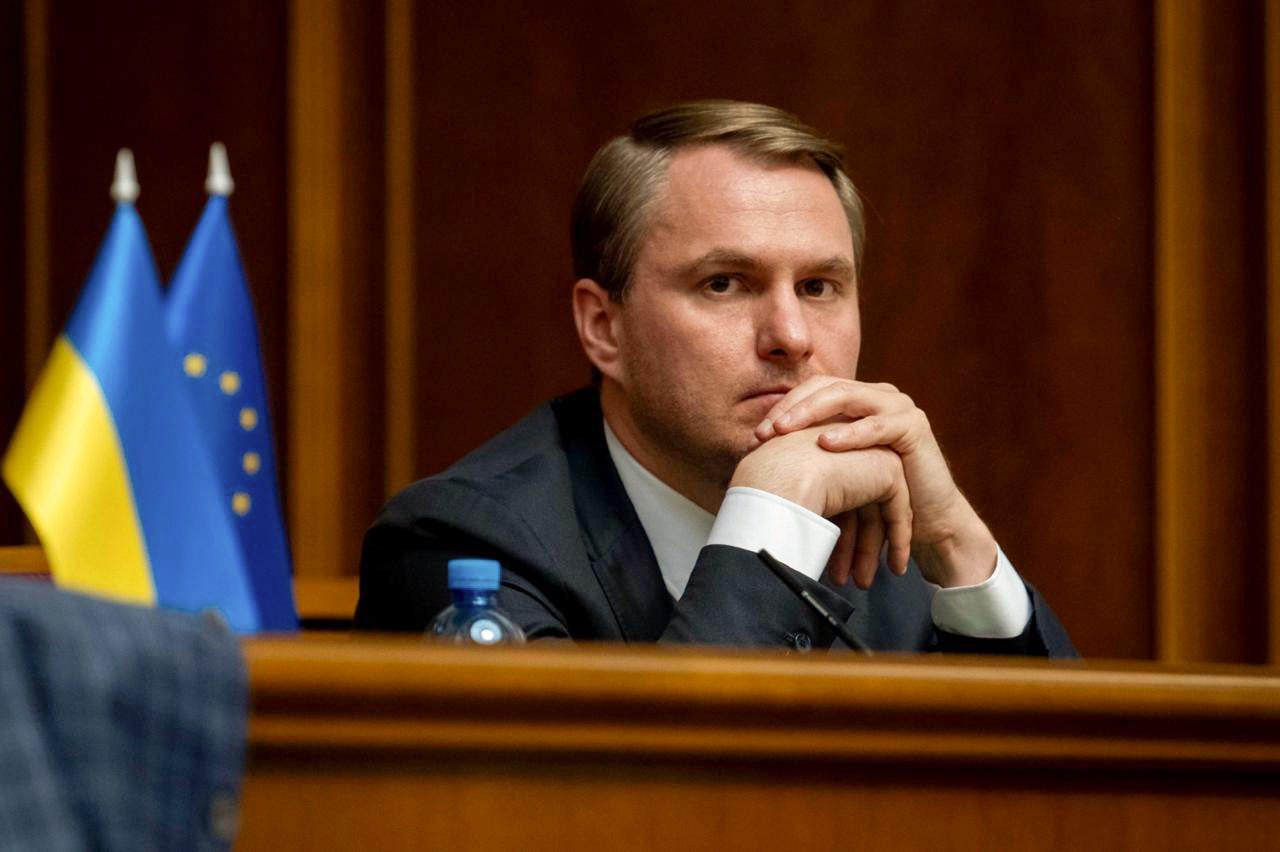 Prosecutor General Ruslan Kravchenko assured that NABU and SAPO would remain independent (Photo: facebook.com/RuslanKravchenkoKyiv)
Prosecutor General Ruslan Kravchenko assured that NABU and SAPO would remain independent (Photo: facebook.com/RuslanKravchenkoKyiv)
Later that day, the Prosecutor General's Office held another press conference. Kravchenko said that during the morning meeting with the President, it was agreed that all grievances about the bill should be consolidated into a single document and reviewed in the coming weeks. That evening, even more people took to the streets than on the first day, likely speeding up the response.
On July 24, three days after the controversial amendments were adopted, Zelenskyy announced a new proposal to restore NABU and SAPO's independence. Within hours, he submitted the new bill to Parliament.
MPs told RBC-Ukraine that getting the new bill passed won't be easy. The vote on July 22 not only sparked outrage from the opposition but was openly celebrated by supporters. Anti-corruption agencies have long had a tough time in Parliament, given that they often investigate MPs themselves.
That's why securing 226 votes for Zelenskyy's new bill is a tough challenge, especially when Parliament had just recently voted in the opposite direction. Nonetheless, sources in the Servant of the People political party believe the bill will be addressed soon, and MPs will be "pulled from holidays" to vote on one of the coming days.
What's in president's bill
Bill 13533 cancels all procedural restrictions on SAPO introduced by law 4555-IX (bill 12414) and reverses changes affecting NABU's jurisdiction.
"The current version of the Criminal Procedure Code poses risks to the effective functioning of Ukraine's anti-corruption infrastructure, particularly concerning the independence of NABU and SAPO," the explanatory note says.
Key changes:
- SAPO leadership regains full autonomy without Prosecutor General oversight;
- SAPO head regains the right to notify high-level officials (MPs, presidential candidates, Ombudsman, SAPO prosecutors, NABU director, NACP head, PM, Cabinet members, SBI director) of suspicion;
- The Prosecutor General loses access to NABU case files and the authority to direct NABU detectives;
- NABU's exclusive jurisdiction is restored; cases cannot be reassigned to other agencies;
- Emergency search procedures without a court order are eliminated.
The bill also mandates polygraph tests for employees of NABU, SAPO, the Bureau of Economic Security (BES), the Prosecutor General's Office, SBI, and the National Police who have access to state secrets. According to the explanatory note, this is to protect anti-corruption institutions from Russian influence.
"Anyone with access to state secrets - not just in NABU and SAPO, but also SBI and our National Police - must undergo lie detector tests regularly," Zelenskyy said in his nightly address.
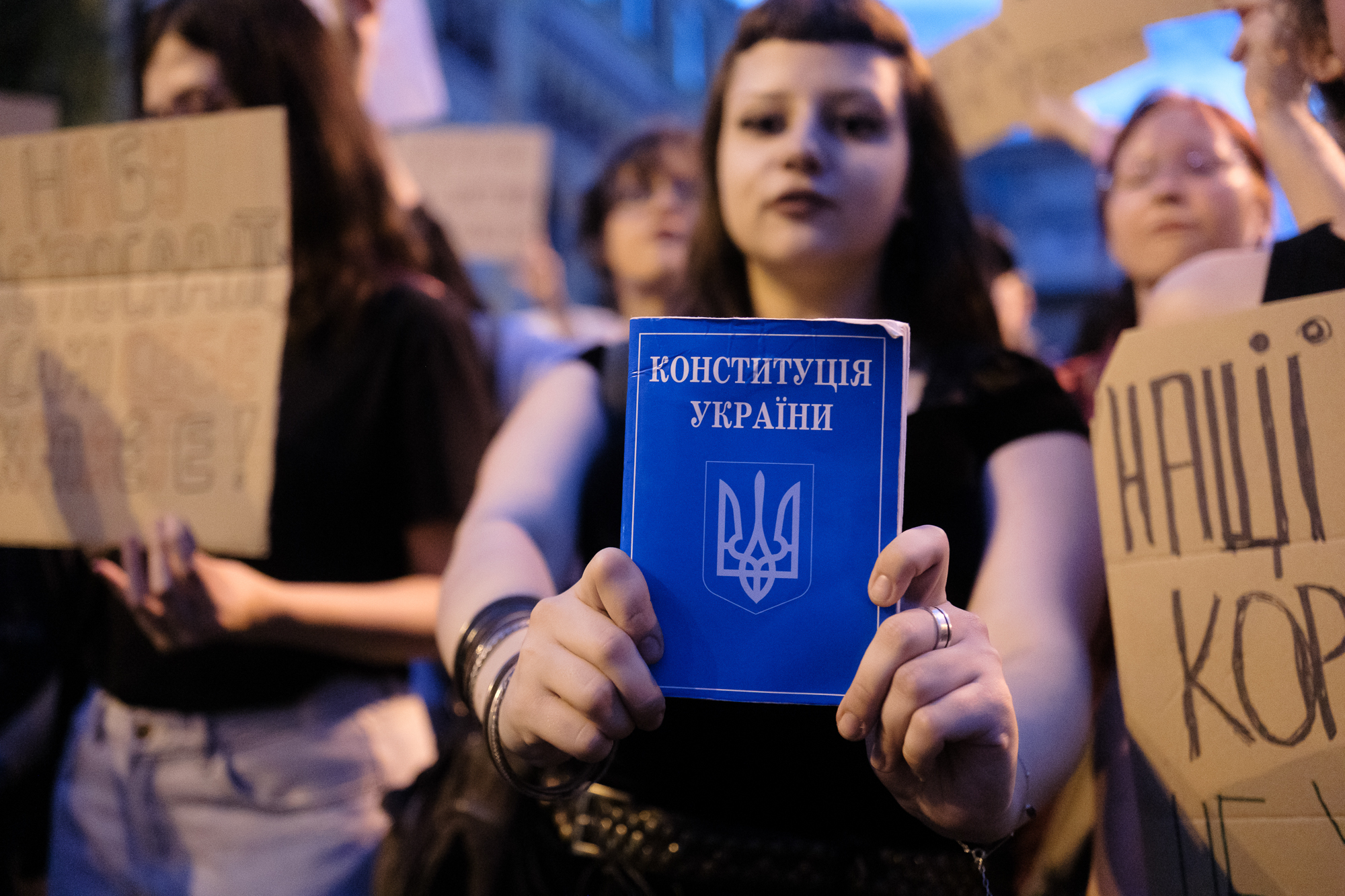 Zelenskyy introduced a new bill for NABU and SAPO amid ongoing protests (Photo: Vitalii Nosach/RBC-Ukraine)
Zelenskyy introduced a new bill for NABU and SAPO amid ongoing protests (Photo: Vitalii Nosach/RBC-Ukraine)
The checks must occur at least once every two years. The first wave of tests must be conducted by the SBU within six months of the law taking effect.
The bill also proposes banning NABU employees from traveling abroad during martial law, except for official assignments. The Cabinet and NABU must implement these changes within a month.
How NABU and SAPO react to bill 13533
Both NABU and SAPO support Zelenskyy's proposed bill. The agencies confirmed that the document restores their procedural powers and guarantees their independence.
"NABU and SAPO participated in drafting the text and call on Parliament to adopt the President's initiative as soon as possible. This will help prevent threats to ongoing criminal investigations," the joint statement says.
As for the polygraph tests, NABU clarified that they would be conducted not by the SBU, but by NABU's Internal Control Department.
"It's important to note: the use of polygraphs in these cases is already an internal Bureau practice. Staff undergo polygraphs during internal investigations, appointments, and reappointments. This isn't new - it's a tool of internal integrity," NABU stated.
However, they emphasized that it is crucial for the methodology, developed jointly by NABU and the SBU, to exclude any risk of interference or pressure on employees.
When could Parliament review bill 13533
Zelenskyy submitted his bill as urgent, meaning the Rada will consider it at the next available session. Parliament's Speaker Ruslan Stefanchuk confirmed this, though no exact date is set yet.
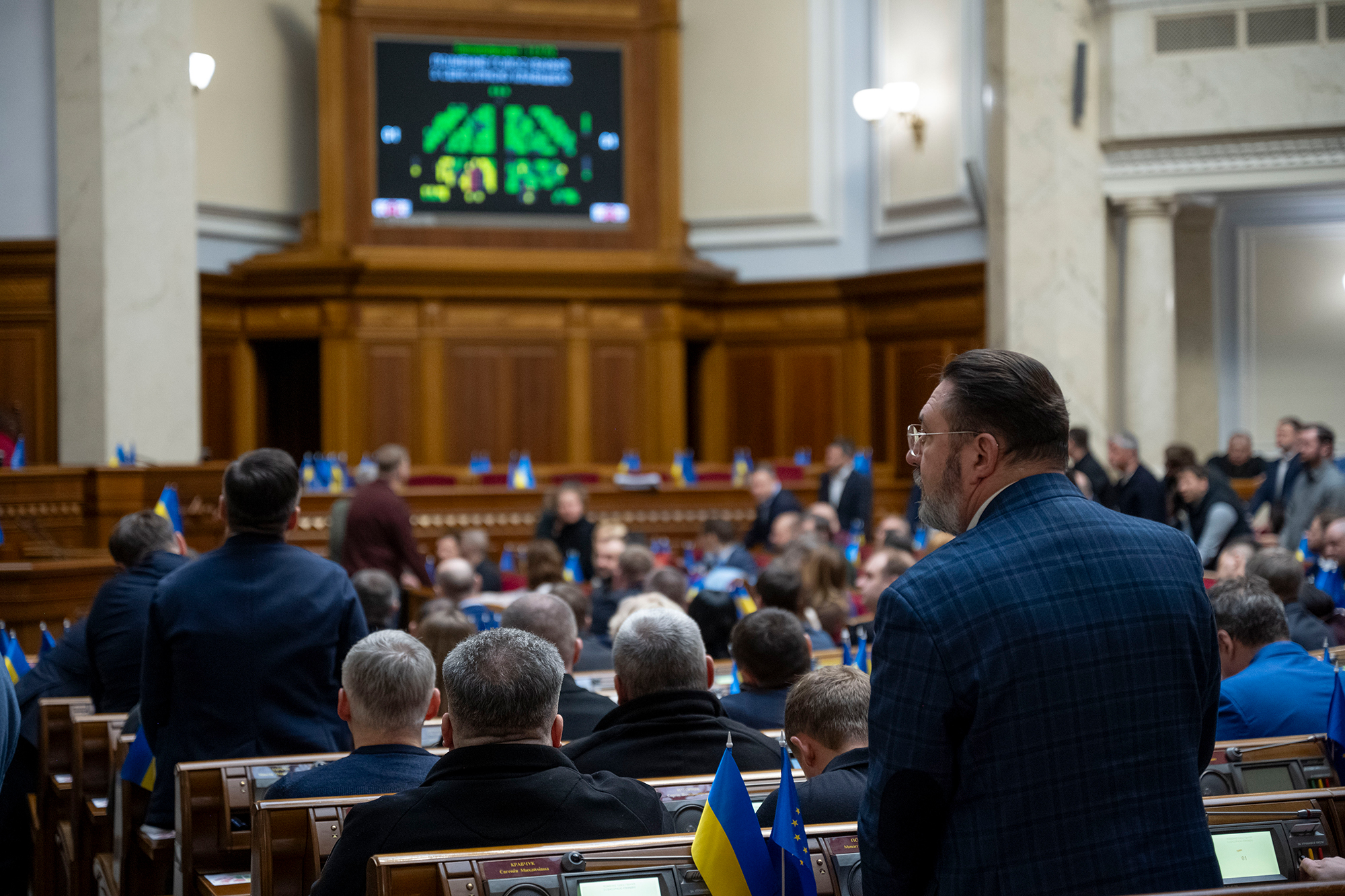 Zelenskyy’s bill awaits review in the Rada (Photo: Getty Images)
Zelenskyy’s bill awaits review in the Rada (Photo: Getty Images)
The issue is that this week, MPs went on a four-week holiday. However, the Speaker retains the right to call a special session, even during such a period.
According to MP Yaroslav Zhelezniak (Holos party), the bill could be reviewed next week, possibly between July 29 and 31.
MPs' alternative proposal
A day before Zelenskyy submitted his bill, a group of 48 MPs from various factions introduced a proposal to restore the independence of NABU and SAPO. Bill No. 13531 completely abolishes the changes introduced by the controversial law.
Zelenskyy's bill, however, retains some of those changes. For instance, the Prosecutor General's right to request case files for review remains, but now excludes NABU cases.
The MPs' draft has been submitted to parliamentary leadership, but given the president's competing initiative, it is unlikely to be brought to a vote.
***
The protests in Ukraine sparked a strong reaction not only among allies but also adversaries. Ukrainian Foreign Intelligence Service has warned that the Kremlin is trying to exploit the rallies for its own benefit. Russian outlets began spreading stories about Ukrainians allegedly demanding surrender or regime change - narratives that serve Moscow's interests.
The government's swift response to a crisis that could have been avoided altogether leaves Russia with fewer opportunities to use its usual Maidan 2.0 propaganda scenario. More importantly, it gave the Ukrainian authorities an opportunity to listen to the anti-corruption community and potentially establish ongoing, effective dialogue.
After more than three and a half years of full-scale war, the Ukrainian public's demand for justice has only intensified. The spontaneous protests that lasted several days sent a clear message: people want a dialogue with their government, and they will make themselves heard if ignored.
Furthermore, the protests sent a message not just to adversaries but also to skeptics in Europe: Ukraine has all the features of a functioning democracy, despite Russian narratives about the "Kyiv regime." Unlike Moscow, the Ukrainian government is willing to listen to the people, and even fix mistakes, whether or not it admits to them publicly.
Sources: texts of bills 13533 and 13531, statements by President Zelenskyy, Parliament Speaker Ruslan Stefanchuk, NABU, and SAPO.

